Sustineri Piscis
Cellular Aquaculture
Innovation, technology and sustainability in fish
In 1931, Winston Churchill predicted that one day “we shall escape the absurdity of growing a whole chicken in order to eat the breast or wing, by growing these parts separately under a suitable medium".
Ninety years later, that day has come. And it also arrived for the fish!


About Us
We are the first startup (foodtech) in Brazil to produce cultured fish meat. Genuine and fresh meat, produced in a laboratory, without fishing or animal slaughter.
We decided to revolutionize the traditional seafood consumption model, made possible by wild fishing for centuries, and propose the Cellular Aquaculture as a scalable innovative solution, an ecologically correct alternative for healthier, safer and more sustainable consumption.
It is the investment with PURPOSE, with great environmental impact by saving nature and its marine resources.
What's the problem with wild fishing?
Problem 1
Wild fish depletion
Around 90% of commercial wild fish is already at full exploitation capacity, but seafood demand will continue to grow by 30% a year over the next decade. Thus, with the addition of commercial wild fishing, and the consequent fisheries resources depletion, with global warming and ocean acidification, we will have an unsustainable global scenario within a few years!
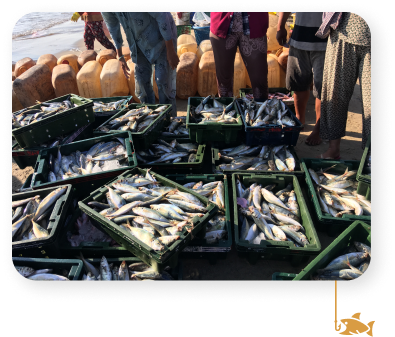
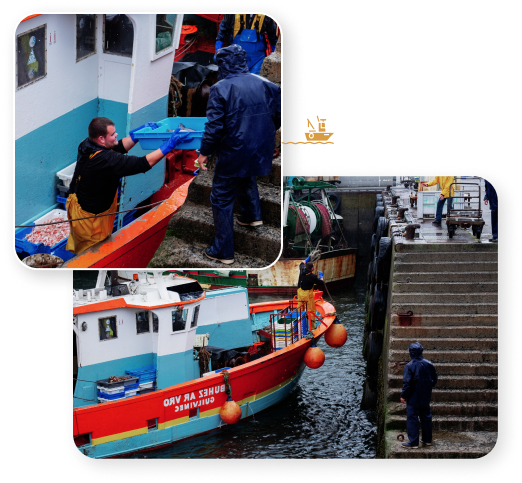
Problem 2
Wild fish consumption risk
Contamination by pollutants - Widely consumed carnivorous species, such as tuna, snowy grouper, snook and dusky grouper, currently contain high level toxic concentrations of heavy metals, such as mercury*, persistent organic contaminants, long-lasting toxic chemicals such as insecticides, and micro plastic.
* About 80 to 90% of the mercury accumulated in the human organism can be associated by the wild fish consumption. These harmful substances accumulate in the human body and can, in the medium/long term, cause irreversible gastrointestinal, teratogenic and/or neurological chronic diseases.
Fraud - About 30% of all fish caught are misidentified in the world's markets and fishmongers. An investigation in the United States from 2010 to 2015 found that 1/3 of all wild fish tested in the country was misidentified.
Cellular Aquaculture
What is ?
It is the bioproduction of fish by cell culture, which takes place from a high quality cell stock. It is fish meat grown in the laboratory, far from the oceans or breeding ponds, without the need for seawater and its pollutants (human health) and don`t need for the animal, its capture, confinement, slaughter and death (well-being animal).
Instead of fishing or harvesting live fish, the same proteins from fresh fish are produced by growing marine fish cells in technological facilities located in the urban environment.
It is not "lab food", imitation meat or plant-based meat. It's genuine fresh fish meat.
How does it happen ?
Cells Source
From the biopsy of the selected fish, adult stem cells are obtained and cultured in the laboratory in order to serve as sources of cell lines for cultured fish meat.

Cell line
After obtain the cell lines, best nutrients media and culture conditions are defined for the optimal growth of cells of cultured fish meat.

Scale up
In bioreactors, cells are fed with optimized growth media and scale up to produce the protein biomass of cultured fish meat.

Structuring
Protein biomass will maturate into three-dimensional growth surfaces (scaffolding) that add up shape and texture to the cultured fish meat.

Final product
Now we have genuine fresh fish meat prepared to consume, with the same texture, flavor and nutritional quality as original fish meat.
Advantages

100% healthy fish meat
Free from persistent contaminants, heavy metals, pesticides, herbicides and insecticides.

100% safe fish meat
Free of bones and parasites.

100% reliable fish meat
Certainty of what you are buying or consuming.

Strengthening ocean sustainability and biodiversity
Fish consumption without fishing and depletion of fish stocks.

Ecological footprint reduction
Local production does not demand consumption of natural resources for freezing and transport.
Benefits

Species demand
Solves the demand problem for high-value predator species that are not viable for traditional aquaculture.

Carcass balancing
It solves the carcass balancing problem faced by fishing and traditional aquaculture, which is the need to monetize parts of the animal carcass that are undervalued by-products.

Inedible waste
It solves the inedible waste problem faced by traditional fishing and aquaculture, which is the disposal of parts that go to the trash, such as scales, skin, eyes, viscera and vertebrae.

Conscious consumer
Perfectly serves the conscious consumer – Balance between personal satisfaction and sustainability (consumption choice).

Vegan consumer
Perfectly serves the vegan consumer – There is no fishing, breeding, confinement, suffering or slaughter and death of the animal.
Cellular Aquaculture as a SCALABLE SOLUTION
Most fish consumers prefer and highly value genuine and fresh meat. These consumers often pay a higher price for fresh seafood that hasn't been frozen. The solution then is to grow fresh fish meat for local consumption, at scale, without transport or freezing costs.
A “BIO FISH SHOP” producing fresh and affordable fish meat in every city in the country, even in cities far from the coast.
Current status
Success in the cultivation and scaling up cell lines from FOUR commercial high-value marine fish species:
Success in the 1st bioproduction of fish meat grown in Brazil.
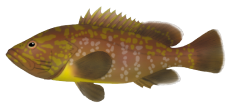
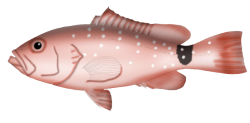
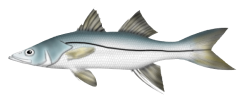
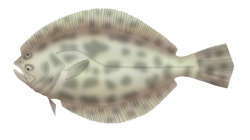
New laboratory
The new Sustineri Piscis laboratory, inaugurated in January 2023 at the Inmetro Technological Campus, in Xerém (RJ), is very well equipped to produce the 1st breaded snook meat using cell culture in Brazil in the first half of 2023. Watch the video and get to know our foodtech.
Experimental event
On August 29, 2023, Sustineri Piscis promoted the experimenting event for the 1st fish ball made from snook cultured meat in Brazil, showing the media and guests that it is indeed possible to eat a fish ball without having to catch this fish in nature. Watch the video and see how the event went.
Seed Money Round
Sustineri Piscis' round on the Eqseed Platform ended on March 16, 2025 with absolute fundraising success, breaking the market record for startup crownfunding. 521 investors believed in our thesis and proposed valuation and contributed R$9,395,000.00. We now have two years of R&D ahead of us, with the challenge of turning marine fish meat, produced by cell culture, into a commercial product. Let's get to work!
Innovation intelligence company StartUs Insights
Sustineri Piscis was highlighted, in April 2025, as a Rising Star by StartUs Insights, placing it in the top 1% of innovative startups globally. This recognition is about Sustineri Piscis joining an elite community of forward thinkers and industry shapers. It is worth noting that Sustineri Piscis is the only representative from Brazil.
The article provides an overview of 10 new alternative seafood protein companies that are introducing innovations in their respective fields. Each featured company is driving significant progress in their respective domains, showcasing diverse applications of alternative seafood technologies.
Innovation intelligence company StartUs InsightsNEW AND LARGER LABORATORIES
The opening of Sustineri Piscis new and larger laboratories in July 2025 at the Inmetro Innovation Center marks an important step in expanding our research and development infrastructure toward the scaled production of a cleaner, safer, and more sustainable protein.
Team
Biologist. PhD in Sciences, specialized in cell culture.
Camila Luna
Research and Development Coordinator
Biologist. Master in Sciences (biotechnology), specialized in cell culture.
Marcus Teixeira
Executive Coordinator
Biologist. Master in Sciences (biotechnology).
Mellannie Pujol
Quality and Technical/Administrative Activities Manager

